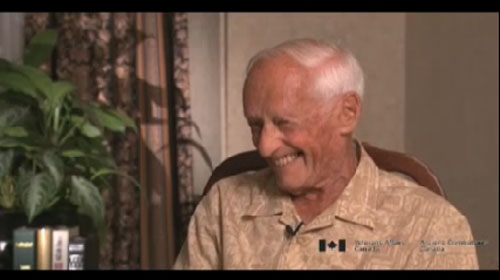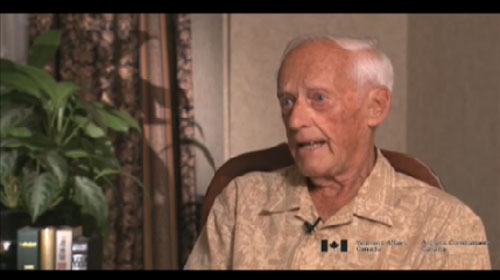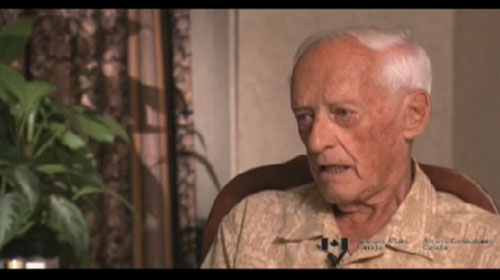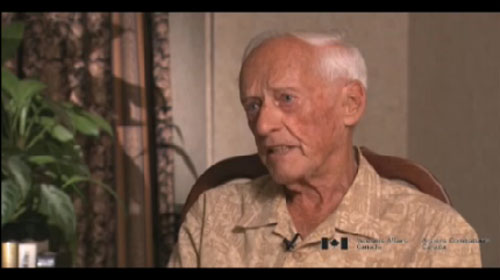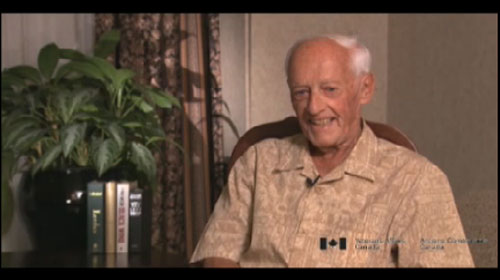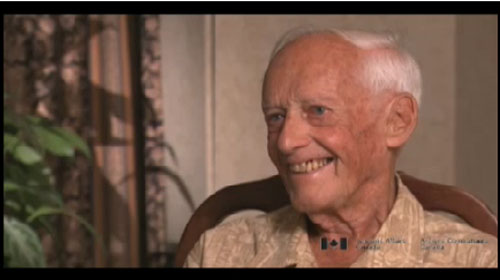Unforgettable Sights
Heroes Remember
Unforgettable Sights
Transcript
Description
Mr. McLean shares his recollection of what he witnessed during flight operations and the significance of the ground crew.
John “Jack” McLean
John (Jack) Caldwell McLean was born on June 1, 1925, in Port Elgin, Ontario. He moved to Hull, Quebec, with his family at age 12, and then eventually settled in Ottawa, Ontario. He enlisted at 55 Queen Street in Ottawa on September 15, 1943, and joined 415 (Swordfish) Squadron, Bomber Command, as an air gunner on an all-Canadian crew. Number 6 Group consisted of 14 squadrons on 7 airfields in Yorkshire, England. Mr. McLean ended the war as a flying officer (FO), after completing a tour of 32 trips. He was also a volunteer for “Tiger Force.” He enjoyed a successful career in the public service at the Department of Finance, the Treasury Board Secretariat, and Indian and Northern Affairs. He was married on May 15, 1948, and raised a family of five. Mr. McLean is a member of Branch 593 of the Royal Canadian Legion (Bells Corners), and is a member of the Air Force Association.
Meta Data
- Medium:
- Video
- Owner:
- Veterans Affairs Canada
- Recorded:
- June 22, 2012
- Duration:
- 4:03
- Person Interviewed:
- John “Jack” McLean
- War, Conflict or Mission:
- Second World War
- Location/Theatre:
- England
- Battle/Campaign:
- Bomber Command
- Branch:
- Air Force
- Units/Ship:
- 415 Squadron
- Occupation:
- Mid Upper / Tail Gunner
Related Videos
- Date modified:



